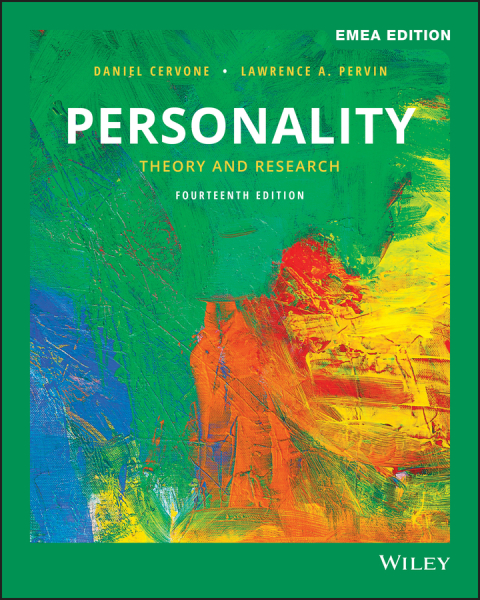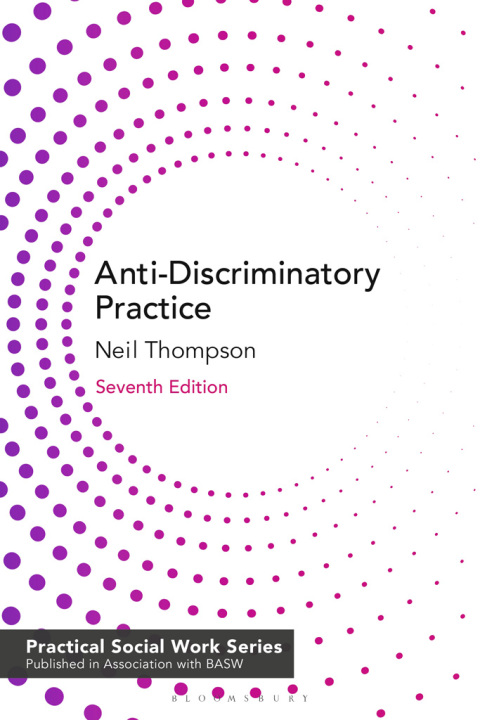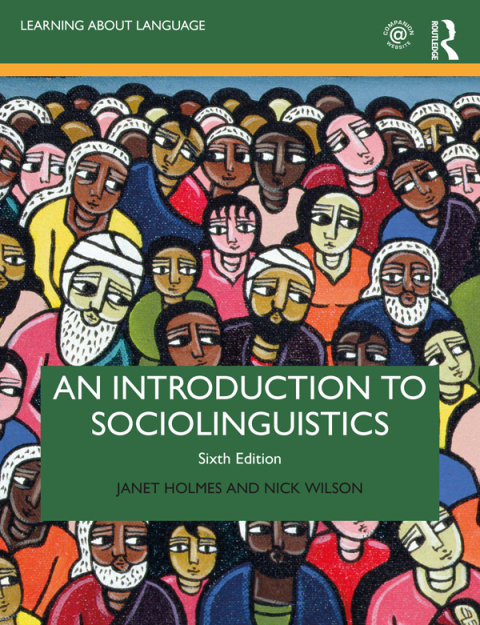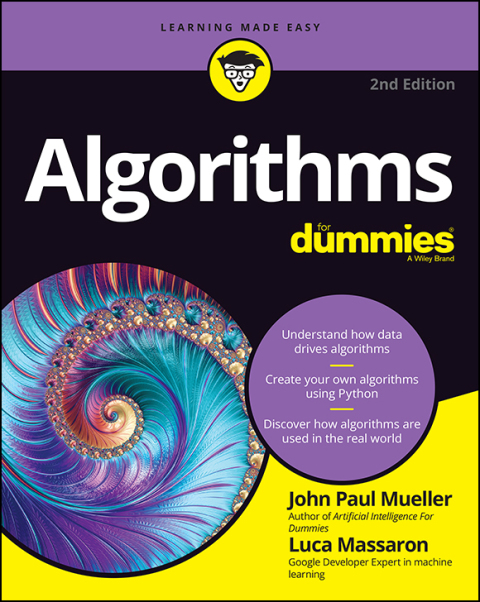Description
Efnisyfirlit
- Cover
- Preface
- To Students and Instructors
- Acknowledgments
- 1 Personality Theory: From Everyday Observations to Systematic Theories
- Questions to be Addressed in this Chapter
- Defining Personality
- Why Study Personality?
- Three Goals for the Personality Theorist
- Answering Questions about Persons Scientifically: Understanding Structures, Processes, Development, and Therapeutic Change
- Important Issues in Personality Theory
- Evaluating Personality Theories
- The Personality Theories: An Introduction
- Major Concepts
- Review
- 2 The Scientific Study of People
- Questions to be Addressed in this Chapter
- The Data of Personality Psychology
- Contemporary Developments in Personality Research: Social Media and Language‐Based Assessments
- Goals of Research: Reliability, Validity, Ethical Behavior
- Three General Strategies of Research
- Personality Theory and Personality Research
- Personality Assessment and the Case of Jim
- Major Concepts
- Review
- 3 A Psychodynamic Theory: Freud’s Psychoanalytic Theory of Personality
- Questions to be Addressed in this Chapter
- Sigmund Freud (1856–1939): A View of the Theorist
- Freud’s View of the Person
- Freud’s View of the Science of Personality
- Freud’s Psychoanalytic Theory of Personality
- Major Concepts
- Review
- 4 Freud’s Psychoanalytic Theory: Applications, Related Theoretical Conceptions, and Contemporary Research
- Questions to be Addressed in this Chapter
- Psychodynamic Personality Assessment: Projective Tests
- Psychopathology
- Psychological Change
- The Case of Jim
- Related Theoretical Conceptions
- Contemporary Developments in Personality Theory: Neuropsychoanalysis
- Critical Evaluation
- Major Concepts
- Review
- 5 A Phenomenological Theory: The Personality Theory of Rogers
- Questions to be Addressed in this Chapter
- Carl R. Rogers (1902–1987): A View of the Theorist
- Rogers’s View of the Person
- Rogers’s View of the Science of Personality
- The Personality Theory of Carl Rogers
- Major Concepts
- Review
- 6 Rogers’s Phenomenological Theory: Applications, Related Theoretical Conceptions, and Contemporary Research
- Questions to be Addressed in this Chapter
- Clinical Applications
- The Case of Jim
- Related Conceptions: Human Potential, Positive Psychology, and Existentialism
- Developments in Research: The Self and Authenticity
- Contemporary Developments in Personality Theory: Personality Systems Interaction Theory and the Integrated Self
- Personality Systems Interaction Theory
- Illustrative Research
- Implications for Rogers’s Self Theory of Personality
- Critical Evaluation
- Major Concepts
- Review
- 7 Trait Theories of Personality: Allport, Eysenck, and Cattell
- Questions to be Addressed in this Chapter
- A View of the Trait Theorists
- Trait Theory’s View of the Person
- Trait Theory’s View of the Science of Personality
- Trait Theories of Personality: Basic Perspectives Shared by Trait Theorists
- The Trait Theory of Gordon W. Allport (1897–1967)
- Identifying Primary Trait Dimensions: Factor Analysis
- The Factor‐Analytic Trait Theory of Raymond B. Cattell (1905–1998)
- The Three‐factor Theory of Hans J. Eysenck (1916–1997)
- Major Concepts
- Review
- Chapter 8: Trait Theory: The Five‐Factor Model and Contemporary Developments
- Questions to be Addressed in this Chapter
- On Taxonomies of Personality
- The Five‐Factor Model of Personality: Research Evidence
- Five‐Factor Theory
- Maybe We Missed One? The Six‐Factor Model
- Cross‐cultural Research: Are the Big Five Dimensions Universal?
- Contemporary Developments in Trait Theory: Reinforcement Sensitivity Theory
- The Case of Jim—Factor‐Analytic Trait‐Based Assessment
- The Person‐Situation Controversy
- Critical Evaluation
- Major Concepts
- Review
- 9 Biological Foundations of Personality
- Questions to be Addressed in this Chapter
- Temperament
- Evolution, Evolutionary Psychology, and Personality
- Genes and Personality
- Mood, Emotion, and the Brain
- Plasticity: Biology as Both Cause and Effect
- Neuroscientific Investigations of “Higher‐Level” Psychological Functions
- Summary
- Major Concepts
- Review
- 10 Behaviorism and The Learning Approaches To Personality
- Questions to be Addressed in this Chapter
- Behaviorism’s View of the Person
- Behaviorism’s View of the Science of Personality
- Watson, Pavlov, and Classical Conditioning
- Skinner’s Theory of Operant Conditioning
- Critical Evaluation
- Major Concepts
- Review
- 11 A Cognitive Theory: George A. Kelly’s Personal Construct Theory of Personality
- Questions to be Addressed in this Chapter
- George A. Kelly (1905–1966): A View of the Theorist
- Kelly’s View of the Science of Personality
- Kelly’s View of the Person
- The Personality Theory of George A. Kelly
- Clinical Applications
- The Case of Jim
- Related Points of View and Recent Developments
- Critical Evaluation
- Major Concepts
- Review
- 12 Social‐Cognitive Theory: Bandura and Mischel
- Questions to be Addressed in this Chapter
- Relating Social‐Cognitive Theory to the Previous Theories
- A View of the Theorists
- Social‐Cognitive Theory’s View of the Person
- Social‐Cognitive Theory’s View of the Science of Personality
- Social‐Cognitive Theory of Personality: Structure
- Social‐Cognitive Theory of Personality: Process
- Social‐Cognitive Theory of Growth and Development
- Major Concepts
- Review
- 13 Social‐Cognitive Theory: Applications, Related Theoretical Conceptions, and Contemporary Developments
- Questions to be Addressed in this Chapter
- Cognitive Components of Personality: Beliefs, Goals, and Evaluative Standards
- Contemporary Developments in Personality Theory: The KAPA Model
- Clinical Applications
- Stress, Coping, and Cognitive Therapy
- The Case of Jim
- Critical Evaluation
- Major Concepts
- Review
- 14 Personality In Context: Interpersonal Relations, Culture, and Development Across The Course of Life
- Questions to be Addressed in this Chapter
- Interpersonal Relationships
- Meeting Academic and Social Challenges: Optimistic Strategies and Defensive Pessimism
- Personality Development in Socioeconomic Context
- Personality Functioning Across the Life Span
- Persons in Cultures
- Putting Personality in Context into Practice
- Summary
- Major Concepts
- Review
- Glossary
- References
- Author Index
- Subject Index
- End User License Agreement







Reviews
There are no reviews yet.